The Mind Body connection and your immune system.
The Power of the Mind-Body Connection: How Hypnotherapy Boosts the Immune System
The connection between mind and body has been recognized for centuries, but modern science is increasingly uncovering how deeply our mental states influence our physical health. One of the most fascinating areas of this connection is how our immune system responds to psychological interventions, like hypnotherapy, which is often overlooked yet holds immense potential for well-being. In this blog, we’ll explore how hypnotherapy taps into the mind-body connection and the remarkable ways it can enhance immune health.
Understanding the Mind-Body Connection
The mind-body connection is based on the idea that our thoughts, emotions, beliefs, and attitudes can positively or negatively affect our biological functioning. Stress is one of the most widely studied areas in this field. When we experience chronic stress, our bodies enter a “fight-or-flight” state, releasing stress hormones like cortisol and adrenaline. While useful in short bursts, prolonged exposure to these stress hormones can lead to inflammation, immune suppression, and a range of health issues.
On the flip side, when we foster a sense of calm and positivity, our body responds by entering a “rest and repair” state. This state is where immune cells, such as white blood cells, are activated, repairing tissues and strengthening our defenses. Hypnotherapy is one tool that can guide us into this restorative state, helping us to manage stress and thereby positively impact our immune function.
What is Hypnotherapy?
Hypnotherapy is a form of guided hypnosis where a trained practitioner uses relaxation techniques, focused attention, and suggestion to help individuals achieve a heightened state of awareness, known as a trance. In this trance-like state, people are more open to suggestions that can encourage positive changes in behavior, thought patterns, and even physical sensations.
The beauty of hypnotherapy lies in its ability to bring about change at a subconscious level. By addressing issues like stress, anxiety, and fear—factors that can weaken the immune system—hypnotherapy can help us establish healthier mental patterns, which in turn strengthens the body.
How Hypnotherapy Boosts Immune Health
- Reducing Stress and Inflammation Chronic stress is known to trigger inflammation in the body. By encouraging deep relaxation and easing stress, hypnotherapy helps reduce the production of inflammatory cytokines—substances secreted by immune cells that can cause or worsen inflammation. Lower inflammation allows the immune system to focus on its primary function: defending the body from pathogens.
- Enhancing White Blood Cell Activity Some research suggests that hypnotherapy can boost the activity of lymphocytes, a type of white blood cell essential for immune function. Studies have shown that individuals who regularly practice relaxation techniques, including hypnosis, tend to have a higher count of active immune cells than those under chronic stress.
- Improving Sleep Quality Hypnotherapy can also improve sleep quality, which is crucial for immune health. During sleep, the body repairs and regenerates, allowing the immune system to reset and prepare for potential threats. Hypnosis can help individuals with insomnia or anxiety sleep better by encouraging relaxation and retraining the mind for restful sleep, further bolstering immune defenses.
- Managing Pain and Reducing Discomfort Hypnotherapy has been widely used for pain management. By reducing pain, hypnotherapy lowers cortisol and other stress-related hormones that can compromise the immune system. Moreover, the reduction of pain allows the body to divert more resources toward healing and immune responses.
- Supporting Positive Mindset and Resilience Hypnotherapy often involves reinforcing positive thought patterns and emotional resilience. A positive mindset can reduce the release of stress hormones and foster a physiological environment where the immune system can thrive. Visualization techniques within hypnotherapy can also help individuals imagine their immune cells working effectively, which, according to some studies, may have a tangible impact on immune activity.
Scientific Evidence Supporting Hypnotherapy and Immunity
Scientific research supports the immune-boosting effects of hypnotherapy. Studies show that hypnotherapy can reduce cortisol levels, promote relaxation, and improve immune markers in individuals with high stress or anxiety. A study conducted at the University of Iowa found that hypnotherapy significantly boosted immune cell activity, including lymphocyte and T-cell response. Other research points to hypnotherapy’s impact on reducing symptoms in autoimmune conditions, which are often exacerbated by stress and inflammation.
While more research is needed to fully understand all the mechanisms involved, these studies underscore the potential of hypnotherapy to support immune health by harmonizing the mind and body.
Getting Started with Hypnotherapy
If you’re curious about using hypnotherapy to support your immune health, here are some simple steps to begin:
- Find a Certified Practitioner: Working with a certified hypnotherapist is essential for achieving the best results, especially if you are new to hypnotherapy.
- Practice Self-Hypnosis: Many techniques, like deep breathing and visualization, can be learned and practiced at home. Starting with short sessions can be helpful for beginners.
- Set Intentions for Health and Resilience: When practicing self-hypnosis, setting an intention for health and resilience can further strengthen the impact on your immune system.
Final Thoughts
The mind-body connection is a powerful aspect of health, and hypnotherapy is an effective tool that can help enhance this connection, particularly for immune health. Through reducing stress, promoting relaxation, improving sleep, and encouraging a positive mindset, hypnotherapy offers a natural and profound way to boost the immune system.
As more research highlights the benefits of hypnotherapy, it’s becoming clear that maintaining immune health is not just about physical interventions; it’s also about cultivating a healthy mind.

